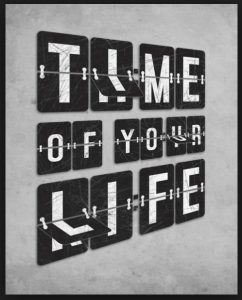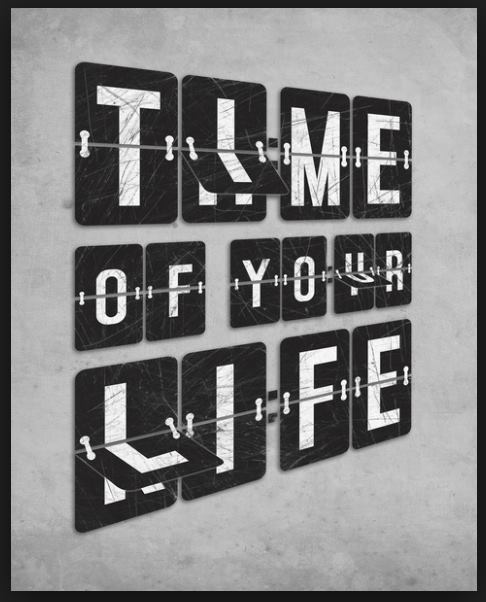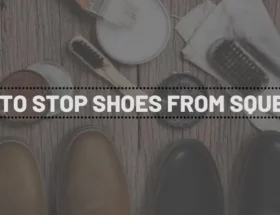How to break free from “hurry disease” in a world wired for health-risking speed.

I used to suffer from “OTIS-ITIS,” that impatient, revved-up state of mind that leads us to keep pushing a lighted elevator button in a futile attempt to speed the car’s arrival. Like many people in our “faster is better” culture, I’d gobble takeout while driving, fidget and fume in the checkout line, and become exasperated if my computer download took more than mere seconds.
Time urgency impatience is what physicians call this chronic sense of pressure, and it’s become an epidemic among multitasking Americans. We log more hours at work than citizens of any other industrialized nation, and 40 percent of us drink three or more caffeinated beverages a day just to keep up the pace. That helps explain why more than half our adult population experience significant stress regularly and get less than the eight hours of sleep needed for good health and optimum performance.
“We have a deeply neurotic and dysfunctional relationship with time,” says Carl Honore, author of In Praise of Slowness: How a Worldwide Movement Is Challenging the Cult of Speed. “Benjamin Franklin said ‘time is money,’ and we don’t want it wasted or stolen. We put quantity ahead of quality and internalize an inner psychology of speed that values saving time and maximizing efficiency.”
It’s our health that pays the price. Time urgency impatience has been associated with a nearly twofold increase in hypertension, and it’s one of the traits that make Type A’s twice as likely as mellower Type B’s to develop heart disease. According to a report in the Journal of the American Medical Association, about 42 percent of young adults suffer from potentially risky levels of TUI, with high levels more common among women and Caucasians. “My guess is that TUI is on the rise,” says study author Lijing L. Yan, Ph.D., M.P.H.
faster vs. better
TRYING TO DECELERATE in a hit-the-gas world isn’t easy. For me, it took a near-death experience. After walking in a marathon, I became severely hyponatremic and fell into a four-day coma. With my recovery came a new desire to savor every moment, even those spent in a traffic jam or paying bills. A quote from Mahatma Gandhi became my mantra: “There is more to life than increasing its speed.” Toward that end, I’ve deepened my practice of yoga and meditation, restarted a book club that lapsed because we were all “too busy,” switched my primary radio station from news to music, and taken up the contemplative hobby of knitting. Here are some other slow-down strategies that will put time back on your side:
1. Set priorities. Make a conscious decision about what you consider important, and let your schedule (and your attitude) reflect your intentions. For example, if relationships and health are high on your list, turn off the TV to free up time for taking walks with friends.
2. Do one thing at a time. When you multitask, it becomes impossible to concentrate, feel deeply, or think clearly. “Doing two or more things at the same time splits our consciousness in two or more ways,” observes meditation teacher Eknath Easwaran.
3. Wake up right. “Set your alarm clock early, but don’t get up when it rings,” suggests Paul Pearsall, Ph.D., author of The Last Self-Help Book You’ll Ever Need: Repress Your Anger, Think Negatively, Be a Good Blamer, & Throttle Your Inner Child. “Lie there a few minutes and practice the savoring response: Think about who and what is worth getting up for and the privilege of being awake in such a rushed yet wonderful world.”
4. Take off your watch. “People hurry up when they see a clock, which is why stores don’t have clocks–they want us to linger,” says Honore, who experiences less anxiety since he unstrapped his own watch. Because there are clocks everywhere–in cars and on cellphones and computers–he’s still punctual, but no longer feels like a slave to time. Test this yourself by going “watch-free” on evenings and weekends.
5. Listen to relaxing music. “Your body synchronizes to the rhythms around you,” says psychologist Sharon Heller, Ph.D., author of Too Loud, Too Bright, Too Fast, Too Tight. Look for music that’s paced to a relaxed heartbeat, about 60 beats per minute.
6. Resist road rage. “See every traffic jam as a meditation assignment,” Pearsall advises. There are few better opportunities to practice positive thinking and forgiveness or perform your deep-breathing exercises.
7. Find your center. Techniques such as meditation and yoga allow you to access patience. “Practices that bring you into stillness and quiet turn off the stress response,” says Peg Baim, N.P., director of training at the Mind-Body Medical Institute, and an associate in medicine at Harvard Medical School. “They help you recharge your batteries and come back into alignment with who you really are.”
take it slow
IFENOUGHOFUS endeavor to become more tortoise-minded and less hare-brained, we might find that slow and steady does win the race. “People are resisting the pressure to do it all in a hurry, and they’re enjoying richer, fuller lives,” says Honore. What’s more, the slow-it-down movement is not about unplugging the Internet or giving up jet travel. “The aim is to do everything at the right speed,” notes Honore. “Sometimes fast, sometimes slow, sometimes in between.”
Rather than compromising performance, a healthier pace lets us all do better work. “People who feel in control of their time are more relaxed, creative, and productive,” Honore says. “Slowing down means taking the time to get the most out of life.”
The Politics of Time
A healthy relationship with time starts at the personal level, but calls for real social change as well. One-fourth of Americans receive no paid vacation, and it’s legal for companies to require without advance notice that workers stay past scheduled shifts; employers can even take disciplinary action against those who refuse.
“We must change our cultural framework about what we value as good and important,” says John de Graaf, editor of Take Back Your Time. “Our focus on money and consumption has crowded out values like health, family, community, and the environment.”
De Graaf is the national coordinator for Take Back Your Time Day, which calls attention to the impact that overwork and overscheduling have on health, relationships, communities, and the environment. The event is held on October 24; it’s scheduled nine weeks before the year’s end to signify that Americans work nine weeks more annually than our peers in Western Europe do. “We’re taking on an elephant here,” admits de Graaf. “But our promotion of busy-ness and speed is a public policy issue that needs to be addressed.”
The Massachusetts Council of Churches and the Take Back Your Time committee recently developed the “Take Four Windows of Time” initiative: Between Labor Day and October 24, participants are asked to select four periods of time for “slow, quiet, reflective, life-renewing activities” like taking long walks or cooking meals with loved ones, says spokeswoman Barbara Brandt. For information on how to get involved in such programs, visit timeday.org.
READ YOUR OWN SPEED-O-METER
Does time urgency impatience threaten your health? Take this super-quick test to find out.
1. Do you often get very upset if you are forced to wait for something? Y/N
2. Do you usually feel pressured about time? Y/N
3. Do you feel you don’t have enough time at the end of the workday? Y/N
4. Do you feel you don’t have enough time during the day? Y/N
The more “yes” answers you have, the greater your TUI score and the higher your risk of developing hypertension.
Four “yes” answers = severe TUI
Three “yes” answers = moderate TUI
Two “yes” answers = mild TUI
One “yes” answer = low TUI
Adapted from the questionnaire used by Lijing L. Yan, Ph.D., M.P.H., in the CARDIA study reported in the Journal of the American Medical Association.





